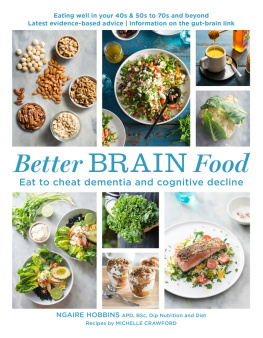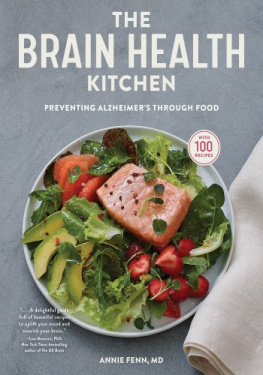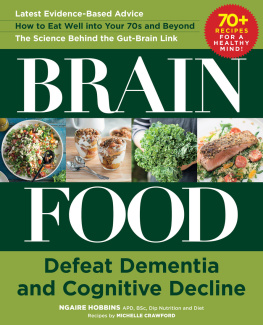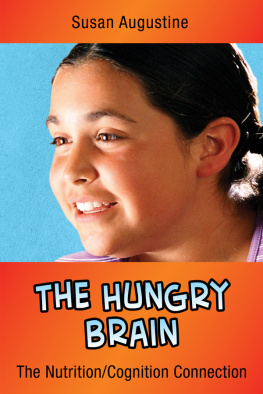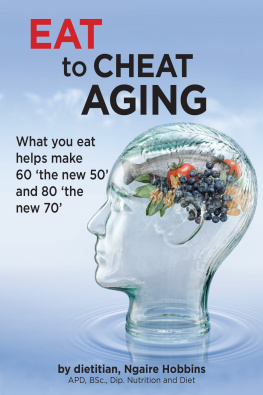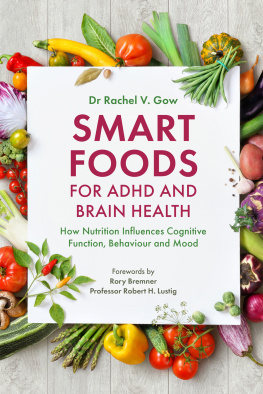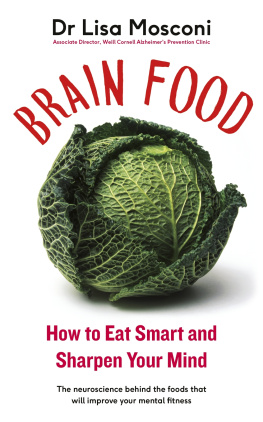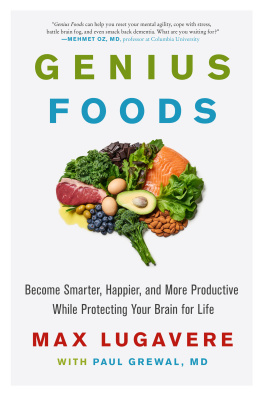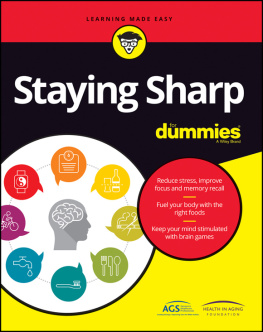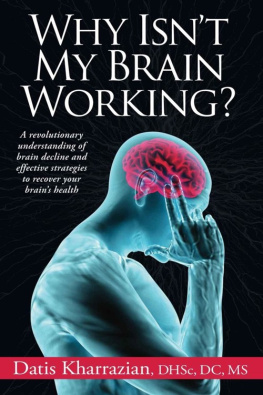Ageing is a triumph of modern medicine. We can expect to live 10 to 20 years longer than our grandparents. These extra years are a great bonus but also impose unprecedented challenges on our bodies and brains.
Recent scientific investigations have uncovered foods and lifestyle strategies that can protect brain cells from damage, and keep the systems that support them working well. Better Brain Food covers:
International expert on nutrition for older people, dietitian Ngaire Hobbins presents a compelling argument that the food you eat can make a big difference to your quality of life as you age. Combined with delicious recipes from Michelle Crawford that offer optimal nutrition for brain health, Better Brain Food is the lifestyle guide you need as you or those you love grow older.
Contents
Foreword
We all want a healthy brain to help us stay engaged in life and achieving all that we hope for as we age.
Ageing is a triumph of modern medicine. Anyone now anywhere near their fifties or so will have had grandparents born close to the beginning of the twentieth century. Their life expectancy at birth was less than 70. Now we expect at least 10, more likely 20, years beyond that. Those extra years are a wonderful bonus but also impose unprecedented challenges to our bodies and brains: our lifestyles have changed. Some things we see as advantages laboursaving devices and technologies, for example are not helping our brains. They reduce our opportunities for everyday activity.
At the same time, many foods have moved further and further from their natural origins and that imposes changes in many ingredients that may impact the health of our brains. Science has shown that we need to embrace seasonal and local foods as much as we can, and combine them with colourful foods (a variety of colours light, dark, strong and muted indicate the presence of nutrients), brain-supporting oils and good proteins, for the sake of our brains.
The advice in this book is based on evidence uncovered so far by science about foods and ingredients that can help protect brain cells from damage, including damage due to oxidation and inflammation, and keep the systems that support them and their activities working as well as possible.
Despite the dire predictions you might hear, the majority of people living into their later years do not develop dementia: statistics indicate that approximately 10 per cent of people over 65 and 30 per cent of those over 85 are living with dementia, but that also means around 90 per cent of over-65s and 70 per cent of over-85s are not!
In this book you will learn the latest on all the ways you can help keep your brain healthy: lifestyle choices and activities that boost both physical and cognitive activity alongside brain-supporting eating strategies.
Science has not yet uncovered any one thing food, gene or environmental factor proven to prevent or cure the cognitive decline that can lead to dementia but its reassuring to know about the things we can do to help keep our brains as healthy as possible and give us the best chance of avoiding disease. The recipes in this book are not only delicious, but offer inspiration for preparing meals to give your brain the best chance of peak health. Recipes are usually for two or more people, but guidance is also provided on adapting them to a single serve, to assist those cooking for just one.
In this selection of recipes, the focus is on including foods that provide ingredients thought to supply nutrients and other substances considered beneficial to the brain. These are delicious individual dishes, but they are not a whole diet. And remember, there is a lot more to good brain health than food alone. Lifelong physical activity and positive social interaction is paramount, supported by learning, thinking and planning throughout life and balanced by good sleep and regular meditative and/or religious practice to provide a bit of recuperative downtime.
I am an Accredited Practising Dietitian: I hold a degree in science and my studies were in human health and physiology. I have postgraduate qualifications in nutrition and dietetics, more than 35 years of wide-ranging clinical experience in nutrition and, most importantly, my professional ethics mean I cannot, and will not, make claims unless I know there is enough medical evidence to back up what I say. The fact that I must answer to my professional association is essential: it protects people from unscrupulous claims and statements. Unless my views are supported by evidence from scientific study, I risk being disqualified as a dietitian and losing my professional credibility.
Our understanding of the contributing factors for brain health will continue to evolve and some advice may ultimately change, but that is the nature of medical research into the human brain. In this book I have taken a broad, practical approach, focusing on the areas in which advice is least likely to change very much.
NGAIRE HOBBINS
LIVING WITH DEMENTIA
A comment for people living with a dementia diagnosis and those who care about them:
There is absolutely nothing in the recipes in this book that precludes them from being prepared and enjoyed by people who are living with a diagnosis of dementia. The delicious recipes here incorporate foods and ingredients to help boost brain health and are of benefit to anyone, but they have generally been designed for people who are not living with this diagnosis.
My previous self-published book, Eat To Cheat Dementia , provides specific guidance and advice for people living with a diagnosis of dementia and those who care about them. It provides practical advice about the specific nutritional support essential to hold off the rapid decline in health and the accelerated loss of ability that weight loss and malnutrition can too easily cause. It also discusses specific aspects of eating, such as the possible need for changes in the texture or types of foods offered and options to boost protein and energy in meals as necessary. The common eating challenges faced by people living with a dementia diagnosis, and guidance on how to best overcome them, is covered in that book.
My books are always firmly based on the latest scientific evidence and that continues to underpin the advice here. I choose language to communicate that to the everyday reader and cook and I stand behind every claim I make.

